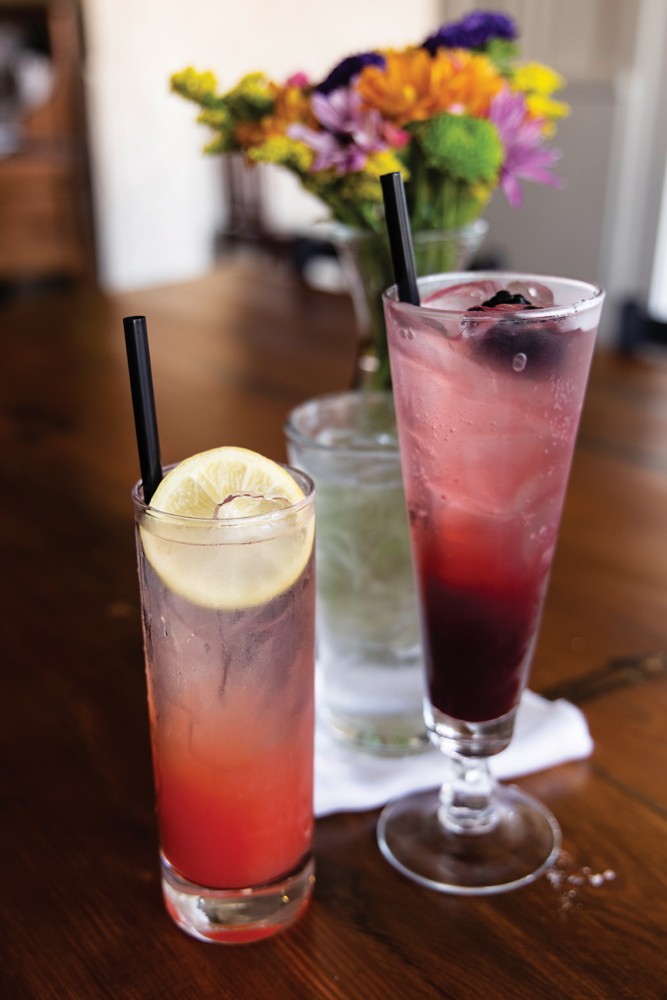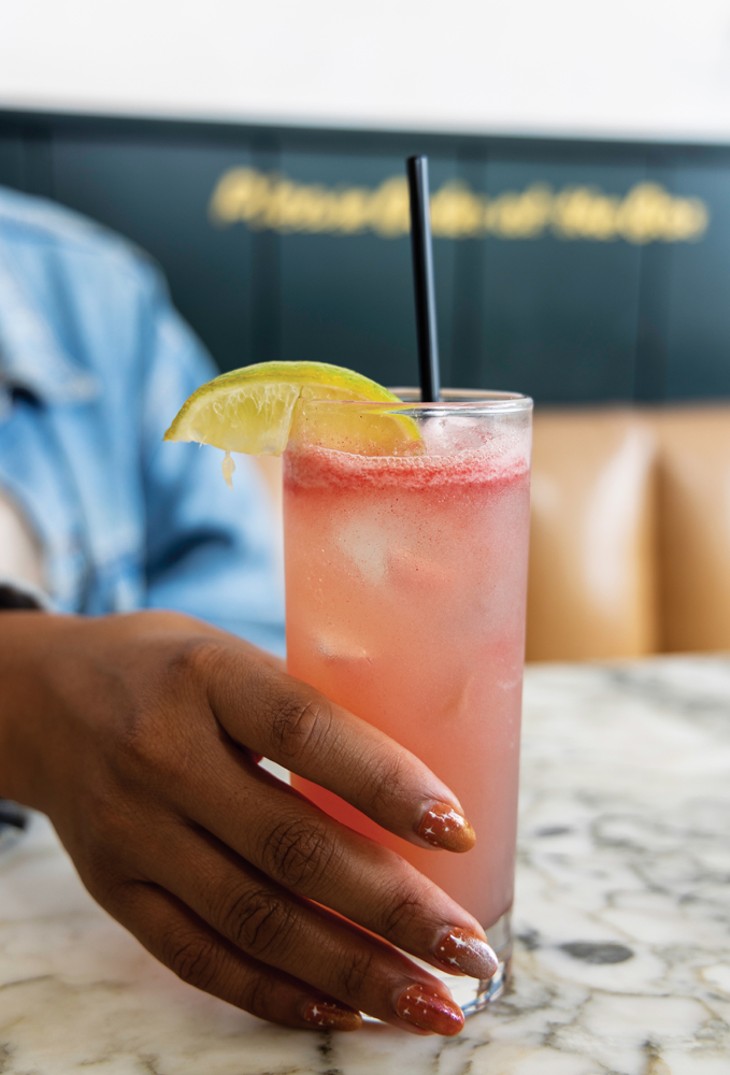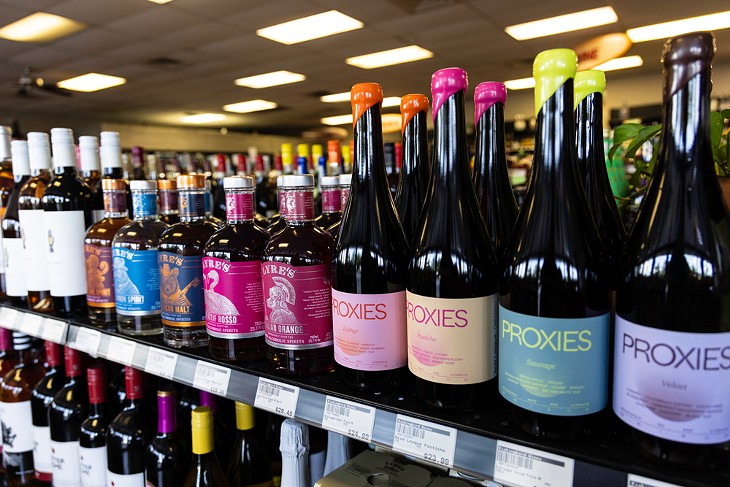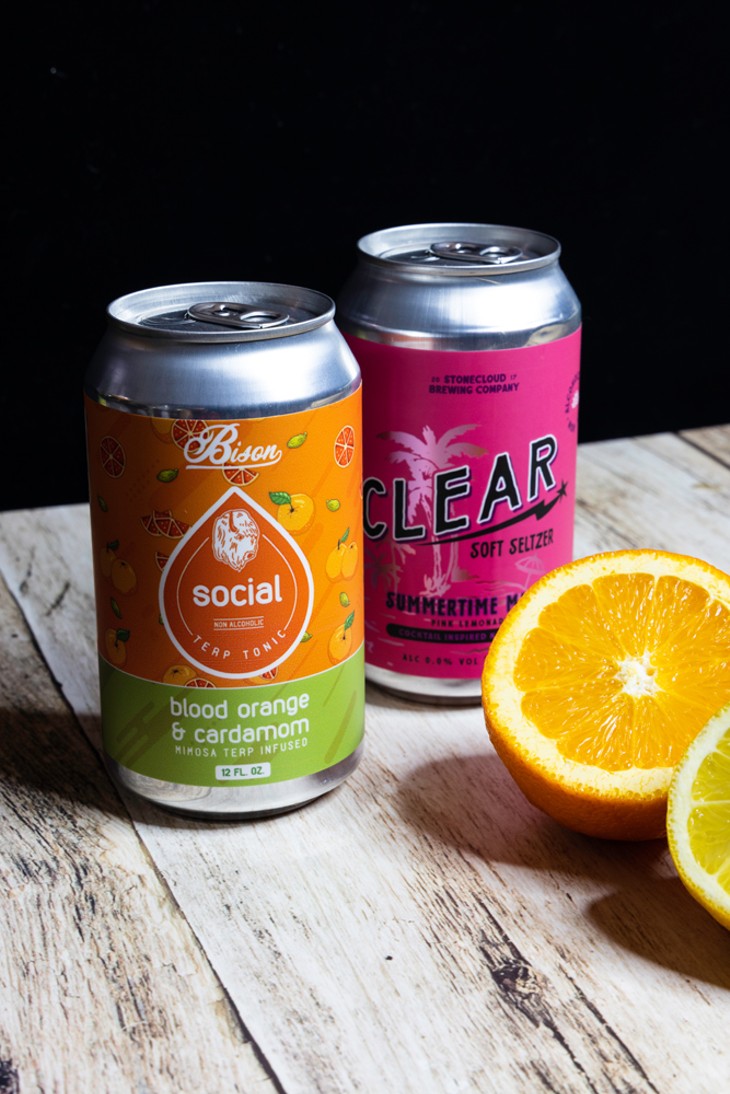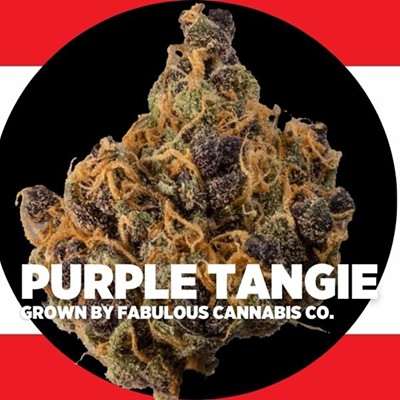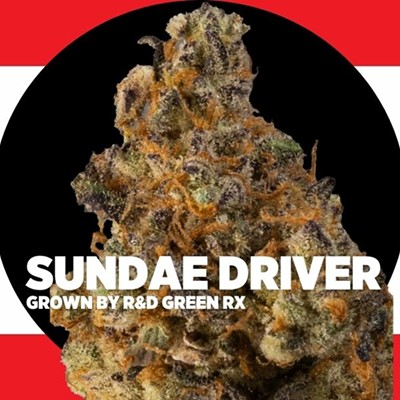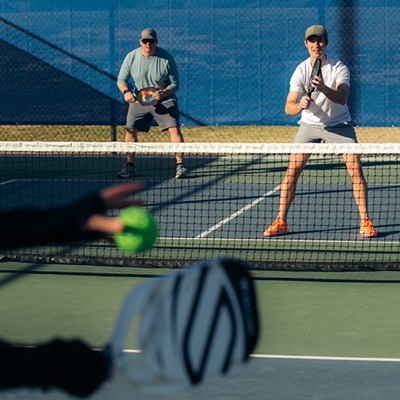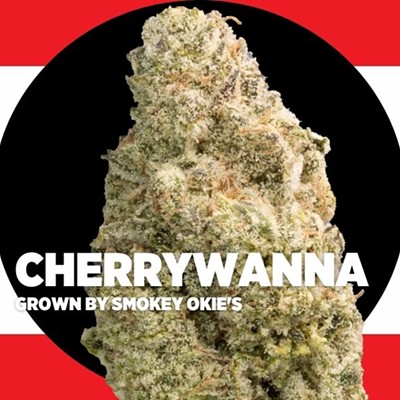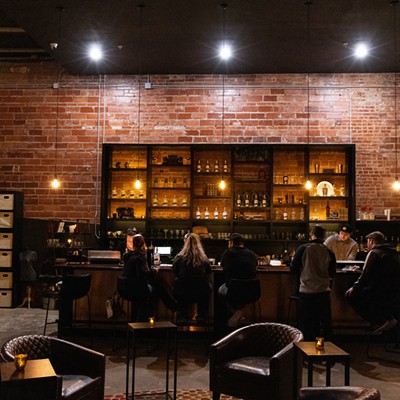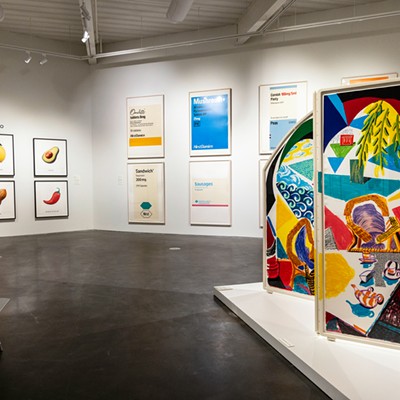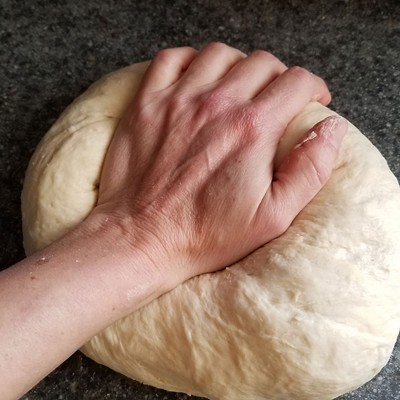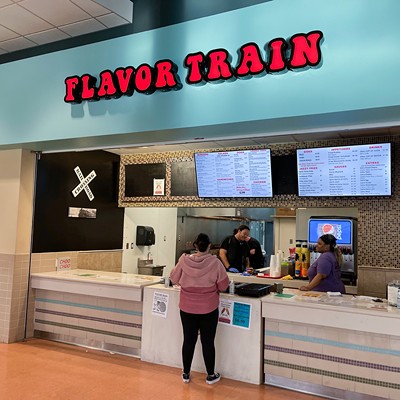“What’s your poison?”
A question reserved for sharply-dressed figures in chiaroscuro on the silver screen is, for many, becoming as outmoded as the styles of dress in yesteryear’s cinema.
Maybe it’s the hangovers, increased anxiety, the empty wallet, the regrettable behavior or simply an increased focus on health, but many are ditching alcohol in search of spiritless spirits and ABV-free beers.
A growing focus on health and mental wellness could be driving the trend upward. Dry January, a month-long commitment to abstain from alcohol, has become increasingly popular over the years, as has Sober October, with many people sticking to it long after the calendar page flips.
A quick search on Facebook will turn up countless numbers of groups focused on sober and sober curious lifestyles. Landon Lamar, an Oklahoma City writer, started a Facebook group called The Fix, designed to uplift and provide community for those choosing to go sober.
To Lamar, a rise in non-alcoholic spirits is a game-changer.
“When I made the commitment to live free of alcohol two years ago, I’d been a binge drinker for about 12 years,” Lamar said. “I drank to quell my anxiety until I realized it was doing more harm than good. Drinking exacerbates my anxiety and comes with even more problems. Alcohol was a central part of my life, especially in social settings. I’ve attended events where everyone is having alcoholic drinks and I’m left with the options of water, soda, or whatever booze-free drink is seemingly lying around. My introduction to spirit-free beverages changed my life. No one is questioning my reasons for abstaining since I’m blending in with a ‘drink’ in my hand, and it makes me feel less awkward. It’s also really fun discovering new mocktails to mix up. I used to be wary of them because I wanted to avoid triggering my cravings. However, I’ve been very pleased at how they help ease me into settings where alcohol is present. They also make great conversation pieces.”
Alcohol risks and abuse
The grave health risks of overindulgence in ethanol are well-known, and it’s the third leading cause of preventable death in the United States. Some studies conclude that no amount of alcohol is safe, and that abstaining is the best policy.
Alcohol Use Disorder (AUD) is characterized by compulsive drinking, losing control over alcohol use, and experiencing unpleasant emotions while not drinking. According to the 2019 National Survey on Drug Use and Health (NSDUH), 14.5 million Americans — roughly one in every 25 people — experienced AUD. Those numbers are estimated to have increased dramatically over the course of the COVID-19 pandemic due to the isolation and stress experienced by many during quarantine, but the pendulum seems to be beginning to swing away from excessive drinking. According to NielsenIQ, non-alcoholic spirits retail sales in the US increased by 116 percent in the previous year while sales of alcoholic beverages decreased by around 1 percent.
Social drinking, from mimosas at brunch to beers after work, has always been perceived as a bonding experience, so it’s not uncommon to feel isolated when taking a step back from alcohol. To quell that, Bri Byrkit-Currell founded the Sober in OKC, the local chapter of a national group focused on sober living. Members share mocktail recipes and host meet-ups centered around different alcohol-free activities.
“Drinking is the only thing that you can quit and people are like, ‘Why aren’t you doing that?’’’ Byrkit-Currell said. “For me getting sober wasn’t really much of an option anymore. I was in a really bad place in my life, mentally and even physically, but it was really lonely to do it.”
She found that being social was an important part of her recovery, and an increase in the availability of non-alcoholic options helped ease anxiety in social situations while keeping the focus on her health and helping others do the same.
The emerging market
In an effort to pace the swelling demographic, many companies are urging casual drinkers to abandon preconceived notions about what a non-alcoholic beverage can be, aiming to alter drinking culture by replacing booze with something complex in flavor with tastes mimicking the real thing. O’Doul’s has been the standard nonalcoholic beer for decades, but staple brands like Heineken, Budweiser and Coors, among many others, have also entered the arena. A plethora of alcohol-free wines, craft beer and spirits also allow people to enjoy the drinking experience without the concern of a hangover or crippling anxiety.
Kickingbird Wine and Spirits in Edmond has added a considerable selection of such products to their shelves.
“I have always liked making cocktails; I just love the process of it,” said Beau Toombs, manager of Kickingbird Wine and Spirits. “My boyfriend’s a chef, and that flavor profile development is in the same wheelhouse. When we did drink, we would make margaritas and strawberry jalapeno margaritas from scratch with fresh ingredients. When we got sober, I had to get really creative to find ways to make a mocktail that even somewhat resembles a real cocktail, so I was using apple cider vinegar because it kind of mimics that burn and funk that you get from alcohol. When we discovered these Lyre’s spirits, we were blown away because you literally just replace whatever liquor you preferred in your cocktail with it. They’ve added some kind of spice to it, something from a pepper, so the drink isn’t spicy but there’s a burn that kind of mimics the burn of alcohol. You get this kind of residual heat on your tongue like you would if you took a shot of whiskey, so they’ve really kind of mimicked the experience of drinking alcohol. They’re really good and the whole line has become really popular.”
The shop also sees alcohol-free product sales among those in recovery and who are pregnant.
“It’s kind of about the ritual of coming home, making that cocktail and relaxing,” Toombs said. “We’re creatures of habit, so it’s like a comfort. If you’re just kind of longing for something that tastes like what your favorite drink was, these drinks can do that, but without the side effects.”
No side effects indeed. Alcohol-free beverages don’t come with the risks of a hangover or DUI, and they often pack fewer calories than their alcoholic equivalents, making them both safer and kinder to the waistline.
“This is definitely a category that has been gaining more attention in the past two years,” said Thomas Motosaka of Republic National Distributing Company. “The big contributing factor in my opinion is people seeking out a healthier, more active lifestyle where particular occasions may call to socialize in the traditional sense but not necessarily imbibe like before.”
Oklahoma breweries and restaurants join the shift
Some Oklahoma breweries are also producing non-alcoholic beverages for their patrons, adding an emphasis on being an establishment that is welcoming to drinkers and non-drinkers alike. Lacy Richards and her husband Travis, owners of Nothing’s Left Brewing Co. in Tulsa, decided to make it a part of their company’s mission.
“What we’ve been seeing is a lot of people like my own sister. She just doesn’t drink,” Lacy Richards said. “It doesn’t make her feel good. She’s not an alcoholic and she doesn’t have any issues with it. She’s just someone who says, ‘I don’t like to feel drugged. It doesn’t feel good to me.’ I was starting to see there were a lot of people who were saying the same exact thing as her. Basically, it has nothing to do with family history or trauma or anything like that. It was solely, ‘I don’t feel good when I drink.’”
In July, the Nothing’s Left team partnered with Necole Cantu and Brandee Spillman of Bison Extracts to create Social Bison Tonics, a unique non-alcoholic terpene-infused tonic in flavors like Blood Orange and Cardamom, which is enhanced with the essence of the Mimosa strain and the Lavender and Lemon that is infused with Sugar Cane terpenes. The drinks don’t contain any THC, either — they’re simply made for taste.
“Travis is an excellent brewer. He knows the chemistry and all the good stuff,” she said. He’s a very creative guy who loves trying new things and he wanted a way to diversify what he’s doing. He really loved the idea of making something that everybody can drink. Not everybody can drink alcohol and there’s a million reasons why we still want to have people around us who are not necessarily drinking, so he is really passionate about it. He has an idea he calls Net Zero, where eventually he makes a product that is enjoyed just as much by non-alcohol drinkers as it is alcohol drinkers, kind of offsetting the amount of alcohol he’s made into the world. Not that making alcohol is bad, but we want to provide something good for people who just don’t want to partake.”
Social Bison Tonics are available in the Nothing’s Left taproom and in stores across Tulsa. They’re hoping to increase distribution to more areas.
“You never know how your market is going to react. Some people are very, very excited about it. And some people are like, cool, stick to beer – that’s your company, that’s what you do. But you know, we’re a really odd brewery and we have a lot of diversity. We like having slushies and soft serve, alcoholic drinks and non-alcoholic ones. We have two little boys, so we’ve always wanted a way for families to come and enjoy our space. Our mission is to be family-friendly and hospitable to anybody,” Richards said.
As more taprooms find ways to cater to their non-drinking patrons, it’s important to note that most of the alcohol-free products you’ll find produced by our local breweries will be seltzers or other flavored carbonated beverages. The process to brew alcohol-free beer is very expensive and specialized, taking the beer through the normal brewing process before requiring additional equipment to remove the alcohol. Stonecloud Brewing Co. produces Clear, a non-alcoholic “soft” seltzer that quickly sold out both in the taproom and in distribution. They’re experimenting with a new line called Hop Water that’s currently only available in the taproom. Neither product is ever brewed with alcohol but simply infused with hops and flavor.
“Clear is more of a full-flavored seltzer with a little bit of sugar,” Joel Irby, Stonecloud’s owner, said. “The Hop Water is just carbonated water flavored with hops and a bit of acidic flavor. For any local brewery, the costs associated with making a non-alcoholic beer are pretty cost-prohibitive, and it’s really expensive to enter that segment. We could use a yeast strain that doesn’t produce alcohol but it’s simply not good — it’s really sweet and tastes like unfermented beer — so until that science progresses I don’t think that’s really a good option. The only other option is getting a piece of equipment that will separate the alcohol out of your finished beer. For a brewery our size, that’s well into the six figures, so it’s really hard to justify that.”
Some larger breweries are using proprietary processes to remove the alcohol, allowing the products to taste very close to the real thing. Alcohol-free wines and spirits also use complex distillation processes to make their products taste similar to their alcoholic counterparts.
Many Oklahoma City bars and restaurants are experiencing a growing request for alcohol-free products and are working to expand their offerings. Bar Cicchetti, Bar Arbolada and Picasso Cafe, among many others, offer craft mocktails to serve the growing demographic. (See this issue’s Gazedibles for more examples) Since reopening this spring, Blue Note, traditionally a dive bar, added several non-alcoholic beer items to their menu and the response has been so overwhelmingly positive, they’re adding a full mocktail menu.
“We’d all talked about having an option for people who don’t want to drink but still want to go out to bars, see live music and hang out,” said Liz Haden, bartender at Blue Note and the Lost Highway. “I think a lot of people just want to be able to have something in their hand and not feel like they’re out of the loop. It has a kind of placebo effect on your brain and you feel like you’re enjoying it as much as everyone around you.”
Justin Evans, director of community relations for South Coast Behavioral Health, sees the rise in alcohol-free options as a step in a positive direction for a society so long focused on drinking culture, but stresses the importance of professional help for those that do struggle with alcohol or other substances.
“It allows us to feel included or at the very least keeps us from having the uncomfortable conversation about why we don’t drink,” Evans said. “I personally enjoy mocktails because they’re normally artisanal and time is taken to make the components. Components that one might not normally notice when mixed with alcohol. However, for those of us with [substance use disorder, or SUD], achieving long term sobriety will involve much more than simply switching to non-alcoholic options. We must address the root cause of our disease. Whether it’s unresolved trauma, poor coping skills, or even a lack of spiritual connection. I highly recommend addressing any SUD issues with a professional. I could most definitely see the potential for a non-alcoholic beer or mocktail to be triggering for an individual in early recovery, but I do feel that it is beneficial for every establishment to offer non-alcoholic options for people living in sobriety.”
Will our culture’s long-standing love affair with alcohol ever end? Probably not, but the demand for a drinking experience that doesn’t come with a barrage of consequences is increasing, and with it an expanding selection of flavorful alternatives.

